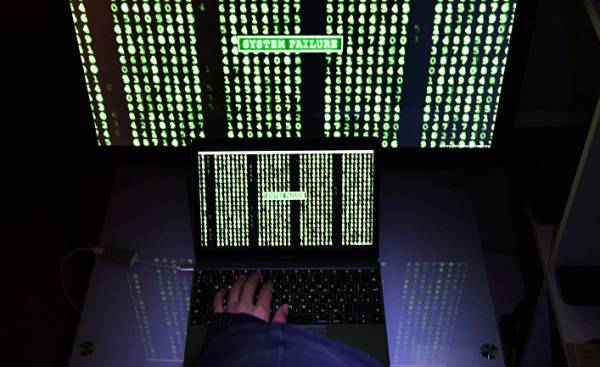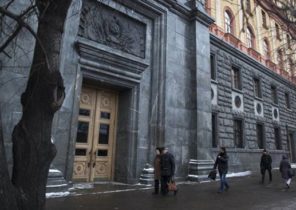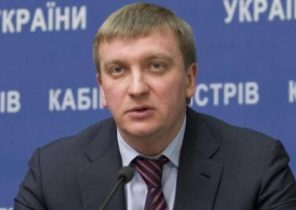
The alleged hacking of Russia in the system of the party “Forward,” President Emmanuel Macron (Emmanuel Macron) on the last day of the campaign in France, most likely, not surprising. From the point of view of those who suspect Russia of trying to destabilize Western democracy, this cyber attack was a logical continuation of the alleged Russian intervention in the U.S. presidential election last year.
From the point of view of the West, this and other cyber attacks directed against American and European officials and institutions, making Russia the most dangerous cyberaggression in the world.
First the most serious threat was a China, which is mainly engaged in corporate espionage, but, according to experts, in recent years it is gradually winding up its operation.
Now in this sense, the leader is Russia — both at the corporate and political arenas. The Director of National intelligence Daniel Coates (Daniel Coats) clearly described the nature of the threat posed by Russia. “Moscow is implementing extremely advanced offensive cyberpromo, and over the past few years the Kremlin has taken a more aggressive stance in cyberspace,” he said in may at a hearing of the Senate Committee on intelligence.
Mr. Coates added: “This aggressiveness manifested itself in Russia’s attempts to influence the American election in 2016, and we believe that only high-ranking Russian officials could authorize the theft and publication of data relating to elections in 2016, as evidenced by the scope and level of secrecy of information.”
James Lewis (James Lewis), the Vice-President of the Center for strategic and international studies, believes that Russian “might have felt that given the magnitude of confusion that they caused during the period of U.S. presidential elections, their campaign was a success”.
He added: “Now we need to watch how they will try to influence European policy and elections. Two factors make me think that this is a real threat. First, it was the doctrine of Russia for many years. Second, Putin himself is determined to destabilize Western democracy.”
In response, the EU improving the system of protection in cyberspace. Sir Julian king (Julian King), EU Commissioner for Union security, which aims to intensify the fight against terrorism and organized crime in the European Union, says the following: “I don’t want to comment on specific allegations in respect of sanctioned by the Russian government in cyber attacks on European governments and companies, because the threats come from everywhere, from a variety of organizations and people from hostile States, criminal groups, terrorists and angry hackers”.
“That is why the European Union is reviewing its security policy in cyberspace, the previous version of which was adopted in 2013. By the standards of the digital space, this is the middle Ages”.
Mary McCord (Mary McCord), a former acting assistant Minister of justice USA on issues of national security, who gave an interview to FT immediately before his departure from that post in may, and before the dismissal of the head of the FBI James Komi (James Comey), said: “Russia’s Actions in cyberspace directed against the United States, including the theft of emails of employees of political organizations in an attempt to intervene in the American elections, are a serious threat and deserve serious responses.”
Ms. McCord added: “One of such measures was a detailed and thorough investigation that the FBI conducts”.
Immediately after the sudden dismissal of Mr. Komi seemed that the future of this investigation in doubt. In the framework of this investigation, the experts tried to find out, could trump or one of his associates to collude with the Russians to hacking email of his rival in the presidential election of 2016, Hillary Clinton. However, after a few days after the dismissal of Komi, the acting Director of the FBI’s Andrew McCabe (Andrew McCabe) said that the Russian investigation will continue.
Ms. McCord also cited evidence that Russian agents have long prevented the realization of US interests. In March the Ministry of justice and the FBI announced that four suspects — including two officers of the FSB was charged with hacking attack on Yahoo and stealing personal data of 500 million users.
She said: “I would also like to remind you about the charges in hacking Yahoo, which prove that the FSB officers had participated, and in some cases even defended, instructed, encouraged and paid to hackers to criminals to those carried out their attack.”
According to Ms. McCord, the magnitude of the threat from China will be gradually reduced. “The US government has taken a number of measures to change China’s behavior and to obtain from the President si promise not to hold and not support theft of intellectual property, including trade secrets and other confidential business information, aiming to provide competitive advantages to companies or commercial sectors.”
In a recent speech the Minister of defence of the United Kingdom sir Michael Fallon (Michael Fallon) has warned that Russia “uses cyber weapons for the destruction of the key mechanisms and the scrapping of machine of democracy” and to “weaken” NATO.
Sorin Ducaru (Sorin Ducaru), Deputy Secretary General of NATO on security issues and new challenges, believes that “state and non-state actors increasingly use cyber attacks to achieve many tactical and strategic goals.” As for Russian intervention, he said: “I would like to draw your attention to recently published reports relating to cyber attacks against key infrastructure such as the attack on Ukraine in 2015, as well as against government computer systems, such as an attack on the Bundestag in 2015.”
John Hultquist (John Hultquist), expert on security from the company FireEye, claims that the traces of many hacker attacks lead to Russia. “Groups like APT 28 APT 29, conducted espionage operations against organizations and institutions in the United States, Europe and countries of the former Soviet Union,” he said.
“After the burglary system of the organization of victims and steal its internal data hackers of APT 28, these data are published to reinforce the concepts or interpretations that are consistent with the interests of Russia — often with the help of so-called hacktivists”.
More than 89% hacking activity attributed APT 28, had on working hours in Moscow and St. Petersburg. According to Holquist, in the first versions of signature and malware APT 28 called Gamefish contained Russian artifacts.
The reporters of the Financial Times appealed to the Ministry of foreign Affairs of Russia with the request to comment on speculation about the involvement of the Russian government to the cyber attacks against Western institutions, but it refused to do so.
Although the scale of the threat posed by Russia, continue to grow, the good news for Western governments and companies is that the cyberattacks to China, apparently reduced, although the threat remains.
According to Mr. Helquist, from late 2015 to 2017, his company tracked hacking attacks by the Chinese factions against the commercial networks and enterprises in USA, Europe and Japan. “In addition Chinese hackers attacks on government, military and commercial sites in China’s neighboring countries.”
Wieland ALGE (Wieland Alge), General Manager of the company Barracuda Networks, specializing in security, agrees that the number of attacks by the Chinese hacker groups “significantly” decreased. “10 years ago China had nothing to lose, so they went to huge risks to steal intellectual property and to engage in corporate espionage, he explained. Now, China’s economy became more developed, so they have more to lose if they maintain their hostile position towards the West”.







